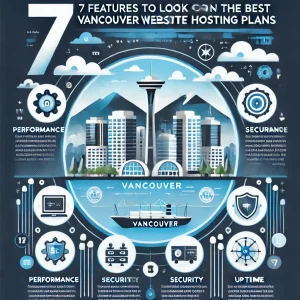
The man in the right position to play a hand in inventing the “http” protocol for the then forthcoming World Wide Web recently stated his thoughts on some keys issues on the current and future Internet. Mr. Lee was tasked with helping computers communicate over a network, him and others helped create the protocol that transmits web pages between computers over a distributed IP network.
Mr. Berners-Lee worked as a contractor at CERN from June - December 1980. While there, he proposed a project based on the concept of “hypertext” to facilitate sharing and updating information among researchers. To demonstrate it, he built a prototype system named “Enquire”.
After leaving CERN in late 1980, he went to work at John Poole's Image Computer Systems, Ltd, in Bournemouth, Dorset. He ran the company's technical side for three years. The project he worked on was a “real time remote procedure call" which gave him experience in computer networking in 1984, he returned to CERN as a fellow. In 1989, CERN was the largest Internet node in Europe, and Berners-Lee saw an opportunity to join hypertext with the Internet.
"I just had to take the hypertext idea and connect it to the Transmission Control Protocol (TCP) and domain name system ideas and ‘ta-da!’ the World Wide Web ... Creating the web was really an act of desperation, because the situation without it was very difficult when I was working at CERN later. Most of the technology involved in the web, like the hypertext, like the Internet, multi=font text objects, had all been designed already. I just had to put them together. It was a step of generalizing, going to a higher level of abstraction, thinking about all the documentation systems out there as being possibly part of a larger imaginary documentation system."
Sir Tim Berners-Lee surprised people at a recent independent festival in California recently. He spoke about, net neutrality and the scandal regarding the “elusive promise” of a truly free Internet. The subject of net neutrality is brought to the forefront in the independent film “For Everyone.Net”, which hopes to put a friendly face on the fight for a free Web. This is the reason why Berners-Lee came to an independent film festival; where his words were recorded.
“We should be able to use the Web without worrying about being spied on and without finding that you can’t get to places because the ISP you use has got a deal with somebody else,“ said Berners-Lee. “The incentive whether you’re a government or a company to mess up net neutrality is control—for example, if you’re an oppressive government and you control the Internet, you can use it in all kinds of nasty ways. “If you look at the world through blurry spectacles, you see a slow and uneven march towards more openness. It’s true that when you go to China you can’t get to YouTube, but you can get to Vimeo. You can’t get to Twitter, but you can get to lots of other sites. China charts on the Web index not because they have an excellent record when it comes to censorship, but because they have a massive amount of stuff happening there—a huge amount of e-commerce, a huge amount of social chat,” he explained. “They’re using the Internet and it’s having a big positive economic effect. I hope that what will happen, bit by bit, is each country realizes it needs to play a part, just from a purely economic point of view. Companies have to be able to see and understand what the outside world is like, and the outside world has to be able to understand what China is like.”
read_more
“I’m very aware of people who’ve been bullied on the Internet typically women. I’m aware of the instructions you can find to do nasty things out there. [But] whenever you see humanity fairly unfiltered, humanity as you know has its dark parts but also its wonderful parts. I’m optimistic about humanity,” he said. I think the energy that people have pushing it in a good direction will overcome the negative effort that’s put in. If you look at the course of history, the path of civilization has been positive. It has been toward greater democracy, greater scientific knowledge, but it’s also been very rocky. It hasn’t been a straight through path, and there have been a lot of disasters along the way. I think when it comes to whether we as humanity in the end can keep it open, establish it very firmly as something which will be open and have the freedom that it has forever… I am not sure, because there are a lot of forces the other way. ”
The internet is much more than the technology that enables it, and it would take volumes to describe all its utility. He was asked if the “dark web” worries him.
“Badness frightens me, goodness thrills me. I think to a certain extent, when you first look at the Web simplistically you feel, well, the Internet surely should be that sort of thing that is equally usable for anybody. ”
He advises tech creators to keep thinking critically of their web designs, he noted even something so simple as how “Like” buttons function.
“Does it encourage people to be constructive, or does it encourage people to be destructive? Does it tend to amplify negative emotion more than it does positive emotion? The way we build websites can have an effect. Some of the most interesting work being done is to try and understand that. Lots of people build new social media websites, I say to them: Try to think about whether it will be one which will be a positive force for harmony in the world. ” On the topic of the group “Anonymous” he says, “There’s a conflict between my right to be anonymous as a whistleblower and my right to reveal you, the person who is bullying me and making my life intolerable by saying untruths about me. Anonymous, the group, is another story,” he said.











